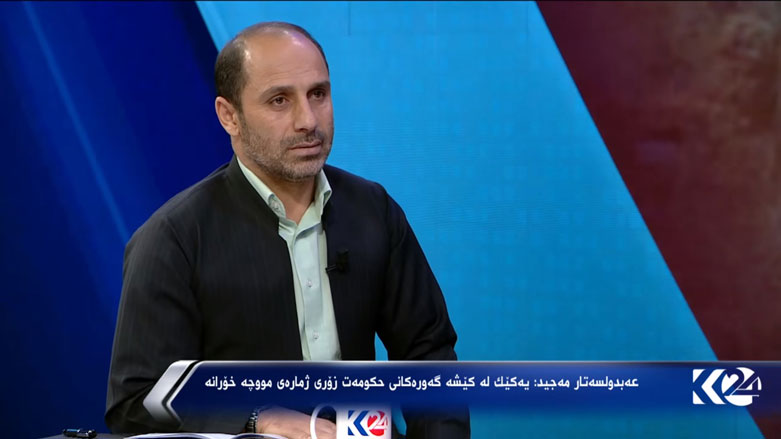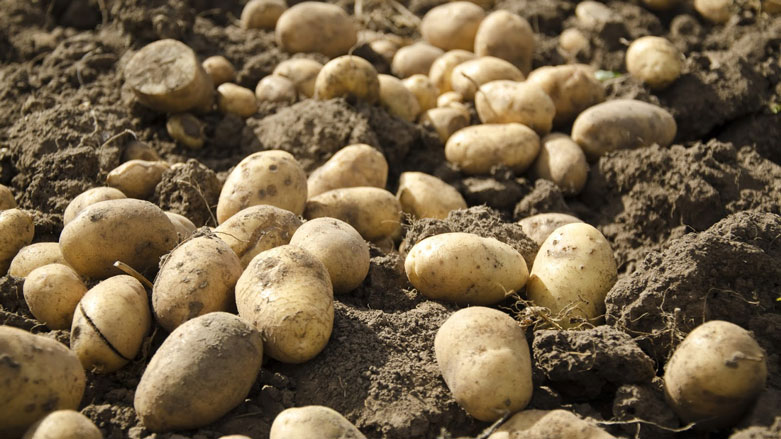Agriculture Ministry suffers from budget cuts

ERBIL, Kurdistan Region (K24) –The Kurdistan Region Minister of Agriculture and Water Resources, Abdulsattar Majid, told K24 that during 2014 and 2015 this ministry did not receive any budget from the Kurdistan Region Government (KRG). In 2013, however, some 1.8 percent budget of the KRG budget was allocated to agriculture.
The minister stated that, according to the experts, the Kurdistan soil and climate condition is eighty to hundred percent suitable for farming. However, the ministry has not been able to take advantage of this opportunity and turn it into an income resource.
Majid stressed that the agriculture budget in Kurdistan Region has never been sufficient and that a correct agriculture policy will play an important economic and political role.
Majid emphasized that agriculture could have alleviated the financial crisis the KRG is facing. He said the decreasing oil prices, along with other events like the budget cut by the Iraqi central government, the war against ISIS, and the number of refugees and displaced people has caused financial issues in Kurdistan Region.
"In its eight cabinet's plan, the KRG mentioned that oil should not be the only economic resource to rely on," He added.
Comparing Kurdistan Region and European Union (EU) economic policy, the Agriculture Minister said: “The EU allocated 40 percent of its budget to agriculture sector this year. Financial support, designating a good budget, and establishing a correct policy for agriculture are universal standards."
"At least, the primary food requirements of our residents should be provided internally," Majid stressed.
"It should be considered a national duty to pay more attention to agriculture so that closing the borders, for example that of Iran and Syria, won't affect our citizens," he added.
Last year the ministry did not allow farming crops that were available locally to be imported, according to Majid. “This decision resulted in an amount of 100 billion incomes during the last eight months of the previous year.”
He also pointed out that the ministry paid the crops transportation expenses in 2014 as a step to decrease the economic burden on the Kurdistan Region farmers to some extent.
He also said the financial support for farming potatoes changed the production rate from 79 thousand tons in 2014 last year to 140 thousand tons of potatoes in 2015 in, namely two times increase. Moreover, some of the crops were exported.
"We will continue this policy to encourage our farmers to boost the production rate. The local production support policy has caused twenty-eight percent decreases in importing Turkish and Iranian products to Kurdistan Region this year.”
The Agriculture Minister was asked if the importing prevention policy will increase the prices of imported goods in Kurdistan markets, especially at this time of economic crises that people are already under pressure. "Certainly the citizens have to compensate for the financial shortcomings of our farmers. The only way to decrease the local products’ prices is to help farmers by providing them with financial support,” he said.
According to Majid, Iranian and Turkish crops are low cost and therefore, are sold for a cheaper price in the Kurdistan Region markets.
"One of the biggest mistakes of KRG during its 23 years of semi-autonomy has been to turn a large number of Kurdistan populations into the government salary receivers. This figure is now up to a 1,400,000 that adds up to the economic problems." He replied when asked if the agriculture minister has played a negative role in disappointing farmers by leaving them on their own in cultivating issues.
"One or two members of each family are government employers in Kurdistan Region and this has affected our economy on one hand and has caused farmers to give up farming on the other hand."
"However it doesn’t mean that we should return those people to the rural areas [by force] to boost agricultural production; the only thing they need is proper financial support to get back to farming."
Majid concluded it is necessary that the Kurdistan Region Parliament, the parties, and media, all contribute to the agriculture development as a national responsibility to make sure the Kurdistan Region citizens will not be affected by border closure.

